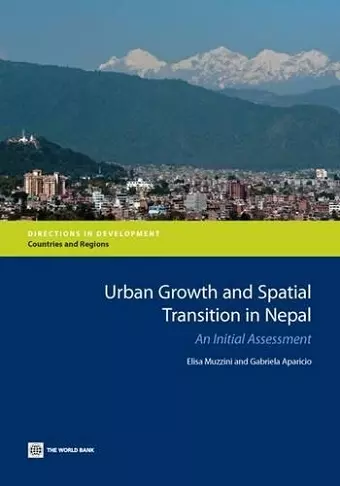Nepal's Urban Growth and Spatial Transition
An Initial Assessment
Elisa Muzzini author Gabriela Aparicio author
Format:Paperback
Publisher:World Bank Publications
Published:4th Apr '13
Currently unavailable, and unfortunately no date known when it will be back

This book carries out an initial assessment of Nepal’s urban growth and spatial transformation, with a focus on spatial demographic and economic trends, economic growth drivers and infrastructure requirements of Nepal’s urban regions. It notes that Nepal is one of the fastest urbanizing countries in South Asia. The spatial transformation is characterized by rapid growing population density in the Kathmandu Valley - Nepal’s largest urban conurbation -, along the main highways and close to the border with India, and clustering of economic production in the Kathmandu Valley and in the Eastern and Western Tarai. Yet, urbanization has been less correlated with economic growth in Nepal than in other countries in South Asia. In spite of its remarkable progress in alleviating poverty, Nepal is caught up in a cycle of political instability and economic stagnation, with economic growth below 4 percent per annum over the last decade. Urban areas have distinct comparative advantage in cultural tourism services, crafts, and agro-processing, but they have not been able to turn them into competitive advantages. Lack of effective planning and inadequate infrastructure are a major constraint for urban growth and competitiveness. Nepal needs to foster the sustainable growth of its urban regions, promote the development and regeneration of the Kathmandu Valley Metropolitan Region and enhance the competitiveness of strategic urban clusters - first and foremost tourism, agro-processing and handicrafts - to unlock urban-based growth and ensure the sustainability of the spatial transformation. The study aims to stimulate evidence-based policy dialogue on Nepal’s urban transition, and assist those working in the critical area for Nepal’s economic development – the Government, the private sector, civil society and the donor communities – in framing policies and interventions for addressing the challenges, and seizing the benefits of rapid urbanization.
ISBN: 9780821396599
Dimensions: unknown
Weight: unknown
160 pages